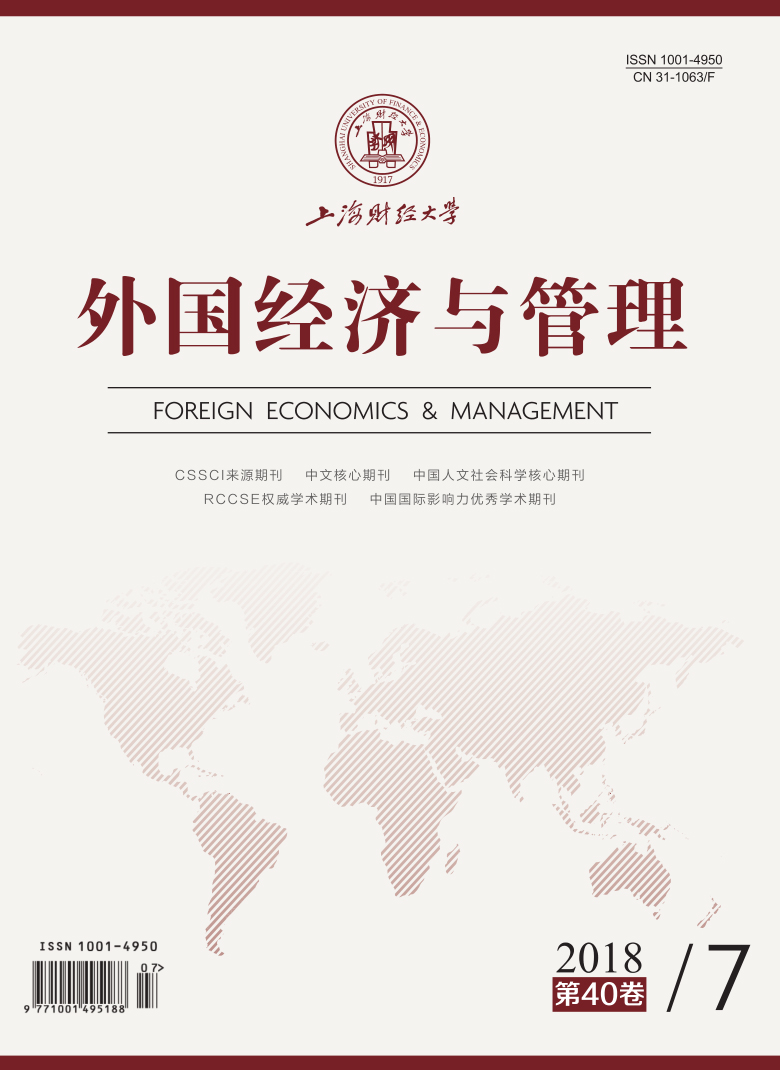团队已经成为当今组织的流行工作模式,提高团队有效性一直是组织与管理研究的热点话题。本文从地位冲突的视角分析了谦卑型领导对团队成员合作与制裁行为的影响。基于7个城市52个施工项目团队277名成员的问卷调研数据,实证分析结果显示:(1)领导越谦卑,团队成员之间发生地位冲突的可能性越小;(2)地位冲突发生的可能性越小,团队成员之间采取合作行为的可能性越大,采取制裁行为的可能性越小;(3)地位冲突在谦卑型领导对团队成员合作行为及制裁行为的关系中起中介作用。
领导越谦卑,团队越有效?——地位冲突的中介作用
摘要
参考文献
16 张钢, 乐晨. 团队有效性研究新进展: 团队适应研究综述[J]. 科技进步与对策, 2017, (1): 154–160. DOI:10.6049/kjjbydc.2016080395
21 Bendersky C, Hays N A. Status conflict in groups[J]. Organization Science, 2012, 23(2): 323–340. DOI:10.1287/orsc.1110.0734
22 Bendersky C, Hays N A. The positive effects of status conflicts in teams where members perceive status hierarchies differently[J]. Social Psychological and Personality Science, 2017, 8(2): 124–132. DOI:10.1177/1948550616667614
23 Boies K, Fiset J, Gill H. Communication and trust are key: Unlocking the relationship between leadership and team performance and creativity[J]. The Leadership Quarterly, 2015, 26(6): 1080–1094. DOI:10.1016/j.leaqua.2015.07.007
25 Ceri-Booms M, Curşeu P L, Oerlemans L A G. Task and person-focused leadership behaviors and team performance: A meta-analysis[J]. Human Resource Management Review, 2017, 27(1): 178–192. DOI:10.1016/j.hrmr.2016.09.010
26 Chen Y R, Peterson R S, Phillips D J, et al. Introduction to the special issue: Bringing status to the table—Attaining, maintaining, and experiencing status in organizations and markets[J]. Organization Science, 2012, 23(2): 299–307. DOI:10.1287/orsc.1110.0668
27 Chen L, Yang B Y, Jing R T. Paternalistic leadership, team conflict, and TMT decision effectiveness: Interactions in the Chinese context[J]. Management and Organization Review, 2015, 11(4): 739–762. DOI:10.1017/mor.2015.34
28 Cheng J T, Tracy J L, Foulsham T, et al. Two ways to the top: Evidence that dominance and prestige are distinct yet viable avenues to social rank and influence[J]. Journal of Personality and Social Psychology, 2013, 104(1): 103–125. DOI:10.1037/a0030398
29 Cheng M Y, Wang L. The mediating effect of ethical climate on the relationship between paternalistic leadership and team identification: A team-level analysis in the Chinese context[J]. Journal of Business Ethics, 2015, 129(3): 639–654. DOI:10.1007/s10551-014-2189-5
30 Chun J S, Choi J N. Members’ needs, intragroup conflict, and group performance[J]. Journal of Applied Psychology, 2014, 99(3): 437–450. DOI:10.1037/a0036363
31 Flynn F J, Reagans R E, Amanatullah E T, et al. Helping one’s way to the top: Self-monitors achieve status by helping others and knowing who helps whom[J]. Journal of Personality and Social Psychology, 2006, 91(6): 1123–1137. DOI:10.1037/0022-3514.91.6.1123
32 Greer L, Bendersky C. Power and status in conflict and negotiation research: Introduction to the special issue[J]. Negotiation and Conflict Management Research, 2013, 6(4): 239–252. DOI:10.1111/ncmr.12021
33 Mathieu J, Maynard M T, Rapp T, et al. Team effectiveness 1997-2007: A review of recent advancements and a glimpse into the future[J]. Journal of Management, 2008, 34(3): 410–476. DOI:10.1177/0149206308316061
34 Oc B, Bashshur M R, Daniels M A, et al. Leader humility in Singapore[J]. Leadership Quarterly, 2015, 26(1): 68–80. DOI:10.1016/j.leaqua.2014.11.005
35 Ou A Y, Tsui A S, Kinicki A J, et al. Humble chief executive officers’ connections to top management team integration and middle managers’ responses[J]. Administrative Science Quarterly, 2014, 59(1): 34–72. DOI:10.1177/0001839213520131
36 Owens B P, Hekman D R. Modeling how to grow: An inductive examination of humble leader behaviors, contingencies, and outcomes[J]. Academy of Management Journal, 2012, 55(4): 787–818. DOI:10.5465/amj.2010.0441
37 Owens B P, Johnson M D, Mitchell T R. Expressed humility in organizations: Implications for performance, teams, and leadership[J]. Organization Science, 2013, 24(5): 1517–1538. DOI:10.1287/orsc.1120.0795
38 Owens B P, Hekman D R. How does leader humility influence team performance? Exploring the mechanisms of contagion and collective promotion focus[J]. Academy of Management Journal, 2016, 59(3): 1088–1111. DOI:10.5465/amj.2013.0660
39 Parker H. Team effectiveness and open discussion of conflict in collaborative new product development: A cross-national study[J]. Journal of Business Research, 2016, 69(11): 4757–4762. DOI:10.1016/j.jbusres.2016.04.026
40 Rego A, Owens B, Leal S, et al. How leader humility helps teams to be humbler, psychologically stronger, and more effective: A moderated mediation model[J]. The Leadership Quarterly, 2017a, 28(5): 639–658. DOI:10.1016/j.leaqua.2017.02.002
41 Rego A, Owens B, Yam K C, et al. Leader humility and team performance: Exploring the mediating mechanisms of team psycap and task allocation effectiveness[J]. Journal of Management, 2017b, DOI:10.1177/0149206316688941. DOI:10.1177/0149206316688941
42 Rego A, Cunha M P E, Simpson A V. The perceived impact of leaders’ humility on team effectiveness: An empirical study[J]. Journal of Business Ethics, 2018, 148(1): 205–218. DOI:10.1007/s10551-015-3008-3
44 Varella P, Javidan M, Waldman D A. A model of instrumental networks: The roles of socialized charismatic leadership and group behavior[J]. Organization Science, 2012, 23(2): 582–595. DOI:10.1287/orsc.1100.0604
45 Zhang H Y, Ou A Y, Tsui A S, et al. CEO humility, narcissism and firm innovation: A paradox perspective on CEO traits[J]. The Leadership Quarterly, 2017, 28(5): 585–604. DOI:10.1016/j.leaqua.2017.01.003
46 Zhou J M, Liu S, Zhang X S, et al. Differential leadership, team conflict and new product development performance: An empirical study from R&D team in China[J]. Chinese Management Studies, 2016, 10(3): 544–558. DOI:10.1108/CMS-10-2015-0240
引用本文
蔡地, 马金鹏, 孙艳, 等. 领导越谦卑,团队越有效?——地位冲突的中介作用[J]. 外国经济与管理, 2018, 40(7): 129-141.
导出参考文献,格式为:
下一篇:国外管理者能力研究述评与展望





 9144
9144  8435
8435

